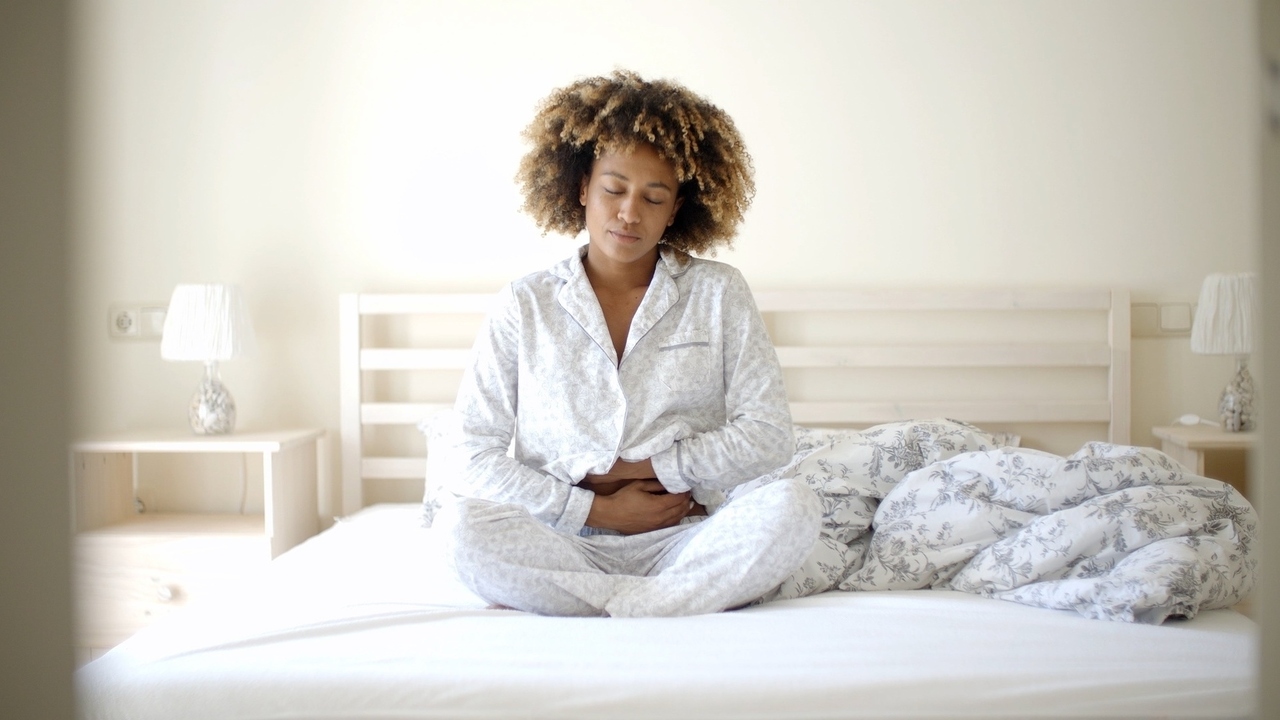 Photo: Getty Images
Photo: Getty Images
It can be one of those “Aha!” moments when you realize that the reason for your sleeplessness is as simple as heartburn.
Heartburn might strike during the day or after a large meal and then linger into your bedtime hour. You can feel it as a burning sensation in your chest, just behind your breastbone, the Mayo Clinic has explained. Also, heartburn discomfort can worsen when you’re lying down.
It might be specifically nighttime heartburn if you wake up with a bitter taste in your mouth, a chronic cough, sore throat or fatigue, according to WebMD. And nighttime heartburn is more common than you might think, affecting as many as four out of five heartburn sufferers.
If it’s a possibility that heartburn is keeping you from falling asleep or staying asleep, then you can explore lifestyle and diet changes as well as over-the-counter medications.
The Mayo Clinic suggests tracking whether certain foods or drinks are triggering heartburn, for instance, orange juice, fried food, coffee and alcohol. If not specific foods, the cause of your heartburn might be late-night eating. The Mayo Clinic said to allow at least three hours between a meal and bedtime.
Other lifestyle changes you can try include losing weight, avoiding tight clothing, eating smaller meals, alleviating stress, and elevating the head of your bed.
The site Sleep.com offered a number of suggestions, including:
-- Chew gum in the evening to increase the production of saliva, which neutralizes stomach acids.
-- Eat a banana, which also is connected to reducing stomach acids.
-- Quit smoking, because not only can smoking increase stomach acids, but also it can relax the lower esophageal sphincter, leading to the reflux of acids from your stomach back into your esophagus.
-- Check with your doctor as to whether certain medications you’re taking are contributing to heartburn. Possibilities include aspirin, anti-depressants, and anti-anxiety drugs.
As far as the plethora of over-the-counter medications available for heartburn relief, your choices include antacids, H-2 receptor blockers and proton pump inhibitors. Don’t rely on any medication for too long, however, as there can be side effects.
When heartburn is affecting your sleep for more than a couple of nights a week, it might be a symptom of gastroesophageal reflux disease, or GERD, which can be quite serious if not controlled. Discuss the various heartburn-fighting lifestyle changes and medications with your health care practitioner.
Sources:
“Heartburn.” Mayo Clinic. Web. 13 Feb. 2012. http://www.mayoclinic.com/health/heartburn-gerd/DS00095
Fries, Wendy C. “28 Tips for Nighttime Heartburn Relief.” WebMD. Web. 13 Feb. 2012. http://www.webmd.com/heartburn-gerd/features/28-tips-for-nighttime-heartburn-relief?ecd=wnl_gid_012612
“Nighttime Heartburn.” Sleep.com. Web. 13 Feb. 2012.
http://www.sleep.com/content/nighttime-heartburn-relief
Reviewed February 14, 2012
by Michele Blacksberg RN
Edited by Jody Smith





Add a CommentComments
There are no comments yet. Be the first one and get the conversation started!